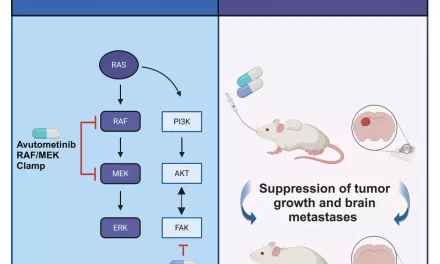Everyday interactions between parents and their babies, characterized by the use of a high-pitched voice known as “parentese,” have been found to play a crucial role in infants’ language development, according to recent research from the University of Washington’s Institute for Learning & Brain Sciences (I-LABS).
In a groundbreaking study utilizing magnetoencephalography (MEG) brain imaging technology, researchers observed heightened brain activity in infants during social interactions compared to nonsocial scenarios. Lead author Alexis Bosseler, a research scientist at I-LABS, highlighted the significance of this approach, noting that it was the first study to directly compare brain responses to adult-infant social interaction versus nonsocial interaction.
The study, published in the journal Current Biology, followed children until the age of 2.5 to examine how early brain activation during social engagement related to future language abilities. Results showed that increased brain activity during social interactions predicted accelerated language development as the children aged.
Insights from Brain Imaging
Andrew Meltzoff, co-director of I-LABS and study co-author, emphasized the broader implications of the findings, suggesting that early brain reactions to language have profound effects on later developmental stages. The study also shed light on the critical period of language acquisition, which begins around the age of six months.
Strategic Timing of the Study
The study focused on five-month-old infants, strategically targeting the phase just before the onset of the sensitive period for speech-language learning. Patricia Kuhl, senior author of the study and co-director of I-LABS, underscored the intuitive nature of using parentese, emphasizing its role in establishing a communicative connection from infancy.
The Power of Social Interaction
Kuhl highlighted the significance of social interaction in language development for parents and educators, emphasizing that it plays a role much earlier than previously thought. The study reaffirmed that the use of parentese, accompanied by gestures of affection and responsive interaction, enhances attention and motivates learning during a crucial developmental phase.
Practical Tips for Using Parentese
Parentese is a natural and effective way to engage with babies and foster their language development. Some key tips include:
- Using a higher pitch to grab babies’ attention
- Speaking slowly and clearly to help babies grasp speech patterns
- Exaggerating sounds to aid in understanding and mimicry
- Being expressive with facial expressions and gestures to add context
- Keeping language simple with short sentences and basic vocabulary
- Responding to babies’ sounds to encourage communication
- Repeating words to reinforce meaning and sound
- Focusing on the here and now by talking about objects and actions in the environment
Conclusion
The study’s findings highlight the importance of social interaction in the early stages of a child’s life and offer valuable insights for parents and educators on fostering language development. By engaging with babies in meaningful ways, such as using parentese, caregivers can lay the foundation for future communication skills and cognitive development.












